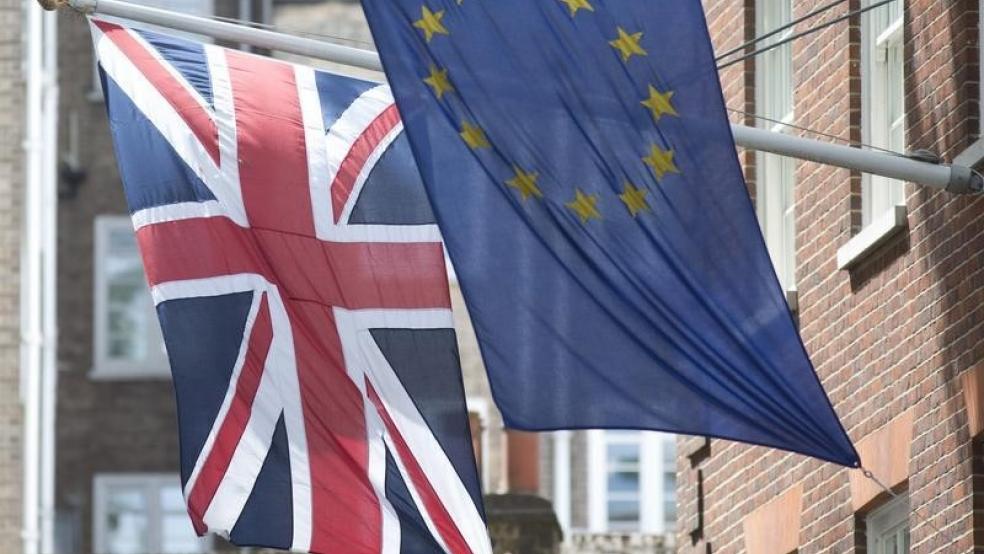What a difference a week makes. As various parties in Britain campaigned to leave the EU, the media derided their quest as the byproduct of xenophobia and bigotry. Voters preferring “Brexit,” we were told, were uneducated, older and mostly white English people hoping to turn back the clock. Frustration with overreaching regulations and legitimate concerns about security were a sideshow, according to most reports.
Now that the vote has actually occurred, a different narrative is emerging. The New York Times describes the EU’s most vulnerable point as its “remoteness from ordinary people and lack of democratic legitimacy.” The paper reported on the first post-vote meeting held by EU leaders, with British Prime Minister David Cameron conspicuously absent. The leaders apparently were unanimous in agreeing that the union must change its ways to curb “a rising tide of populism driven in large part by hostility towards Brussels.” The principle agreement reached by the bureaucratic organization, according to The Times, is “a familiar one — to hold another meeting…”
Related: Pushed Around and Left Out: The Frightening US Parallels to Brexit
It turns out, the ministers agreed in a joint statement that people — the people paying their wages and subject to their diktats — “expect us to do better when it comes to providing security, jobs and growth, as well as hope for a better future.” Well yes, that is their job, one that has been obscured by decades of growing interference in every other aspect of Union life. A job the governments of Europe have been conspicuously poor at managing, as the attacks in Paris and Brussels made all too clear.
The EU, it turns out, really is the bureaucratic mess that U.K. voters repudiated. It is, says The Times, an “elaborately complicated system” with “three different presidents, two different seats of Parliament in cities hundreds of miles apart” and 28 member states. No wonder it’s not more effective.
There is talk of turning more power back to the individual countries in order to stem dissatisfaction, which is not limited to the U.K. A Pew poll this year revealed that 61 percent of the French have an unfavorable view of the EU. In Austria, Italy, Sweden, Denmark, France and even Germany, surging political groups have called for referendums or for changes in the way the EU functions. The leaders of those nations, like the unpopular Francois Hollande in France, are under attack from right-leaning groups opposing the EU.
Related: Why Brexit Fears Are Far from Over for Investors
Unfortunately, Hollande and his counterparts consequently see opportunity in Britain’s removal from the EU. The Financial Times reports European ministers left their first post-Brexit meeting emboldened by the outcome — defiant, even. They hope the market turmoil — the slump in the pound and decline in stock markets — could deter their own naysayers from taking such a momentous step. Consequently, they are taking a hard line, seemingly squelching hopes for a compromise solution that could satisfy British voters but also protect the commercial ties between the U.K. and Europe. After the meeting, Germany’s Angela Merkel said there would be no “cherry-picking” of EU terms; that is, she seemed to spurn the idea that the U.K. could negotiate a partial or less harmful exit.
European leaders also, of course, covet Britain’s leading position in the financial industry. Hollande, eager to secure some portion of the profitable sector, promised the EU would “repatriate the clearing of euro-denominated trading from the City of London.” Germany, also, is salivating at the prospect that it might play a larger role in finance. This hope alone may toughen negotiations.
Related: The Upside of Brexit — 9 Ways You Can Save Money
This is truly madness. At a time when voters are looking for leadership and resolution, EU leaders cannot succumb to greed and petty politics. The preservation of the EU arrangement in its current form is not as important as a vibrant economy and robust mutual defense for its European members.
Hollande, reaching for solutions, proposed a greater effort to “mutualize defense spending and a plan to extend the Erasmus study program to foster cultural exchanges across Europe.”
Seriously, if that is the kind of thinking that is expected to resuscitate a common purpose amongst 28 member states, one has to conclude that the EU is in deep, deep trouble.






